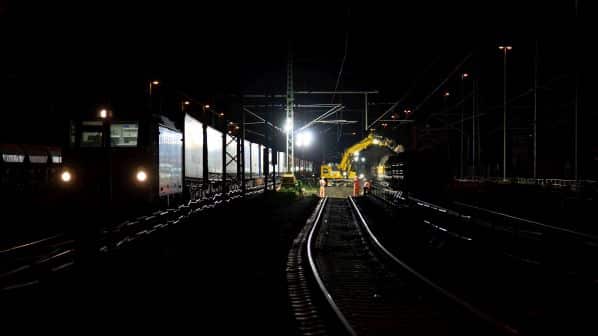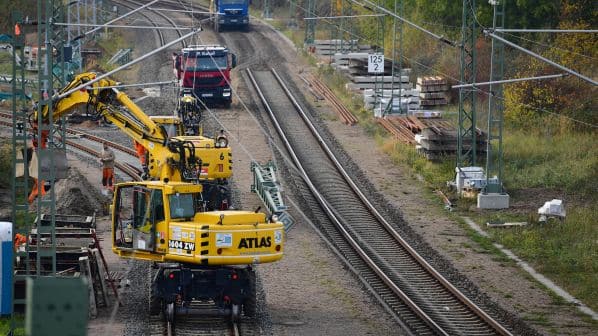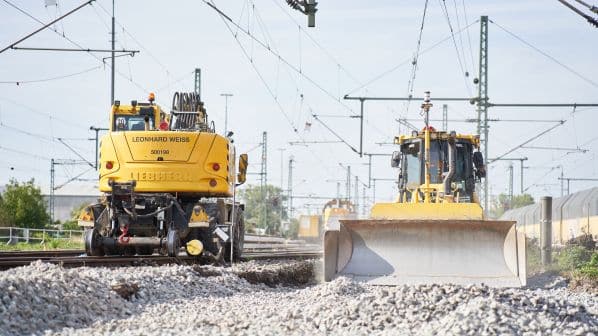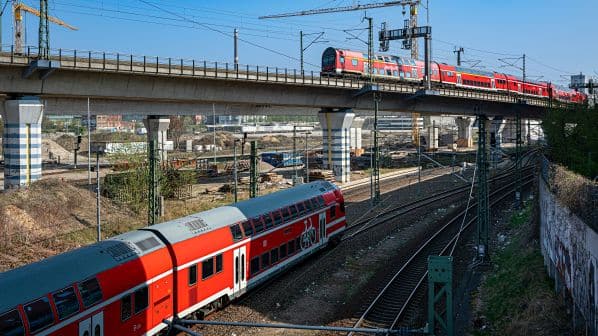THE German three-party coalition government has agreed a new budget for 2024 in which there are widespread expenditure cuts for rail investment following a court ruling in November that prohibited the use of €60bn of funding left unused following the Covid-19 pandemic.
The original budget had assigned around €25bn to rail investment from the Climate and Transformation Fund (KTF) between 2024 and 2027, met in part by the unspent pandemic contingency funds. Plans to increase German Rail’s (DB) capital by €20bn in 2024-2027 to fund infrastructure improvements have been scaled back, with only €5.5bn now allocated. Around €4bn is available in 2024, but is contingent on the government raising money from asset sales.
A statutory debt limit prohibits the government from borrowing more than 0.35% of GDP annually. Germany’s currently stagnant GDP is making the situation more difficult.
According to the German Railway Industry Association (VDB), this leaves an immediate budget gap of around €17bn between now and 2027. This is principally caused by the loss of the KTF funding, which has resulted in the removal from the budget of €3.2bn of funding for onboard ERTMS installation and €9.5bn for infrastructure renewals.
Truck tolls
Longer-term plans to use truck tolls to support rail, a plan which increased in amount and scope in January, should net DB €11bn between 2024 and 2029. DB itself is also expected to generate €3bn, covering much of the gap left by the KTF funds, albeit over a longer timescale. However, the road toll income had already been assigned to rail infrastructure spending. And without additional funding from 2025 onwards, an overall shortfall will remain, affecting the many long-term high-speed and other projects planned to enable the introduction of the Deutschland Takt regular-interval timetable from 2030.
VDB notes that the 2024 budget will focus more on renewal of existing lines where funding has been enhanced by €2.7bn. However, the budget for ERTMS has been reduced from €700m to €395m. Funding for enhancement/electrification schemes has also been cut by €320m.
While the amounts available in the short term are significant, they should be seen in the context of the rail industry’s view that the German network requires substantial investment by 2027, estimated at €88bn.
Infrastructure manager DB InfraGO published its 2022 Network Status Report in January, which reports a decline in overall infrastructure condition compared with the previous year. The score was lower than the national average on the priority corridors or DB’s future high-performance network.
Freight and passenger subsidies cut
As part of the budget process, the government had planned to halve the funding available to offset track access and energy costs for freight companies to around €180m. Rail freight operators made a noisy protest against the proposals by running locomotives with horns blaring through central Berlin and close to the German Parliament on January 17 in a repeat of similar and successful protests in 2020 to secure government support during the pandemic.
The government appears to have relented again, agreeing on January 18 to allocate an additional €50m to the 2024 freight subsidy budget, albeit at the expense of the already-reduced ERTMS allocation.
The freight subsidies are partly the successors of the Covid-19 assistance programme and were principally designed to help the government achieve its target of 25% of all freight moving by rail.
Additional government support to long-distance passenger operators to help meet track access charges will be cut almost completely from €10m to €145,000, while other rail-related programmes financed by the federal transport ministry will also be cut back.
Separately, DB InfraGO is consulting on track access charges for 2025, under which rates for long-distance passenger and freight could increase by 10-15%. The rates for regional passenger traffic are capped by regulation. Together with the subsidy reduction, this is likely to result in higher freight rates for customers and some traffic switching to road.
Infrastructure approach questioned
DB InfraGO is now leading the programme of infrastructure enhancement developed by DB over the last few years. The new nominally arms-length infrastructure manager remains part of the DB group and is continuing with plans to rebuild entire priority corridors during closures extending over several months.
The first such programme is the Frankfurt - Mannheim Riedbahn, which has a budget of around €600m.
Construction industry leaders have publicly criticised DB’s approach in seeking one overall contractor for such a large and time-limited project. At least one major construction firm, Strabag, has not bid, pointing out that removing the ability of major firms like itself to participate in DB tenders will reduce the options available, and is likely to substantially increase the overall cost to the taxpayer.




